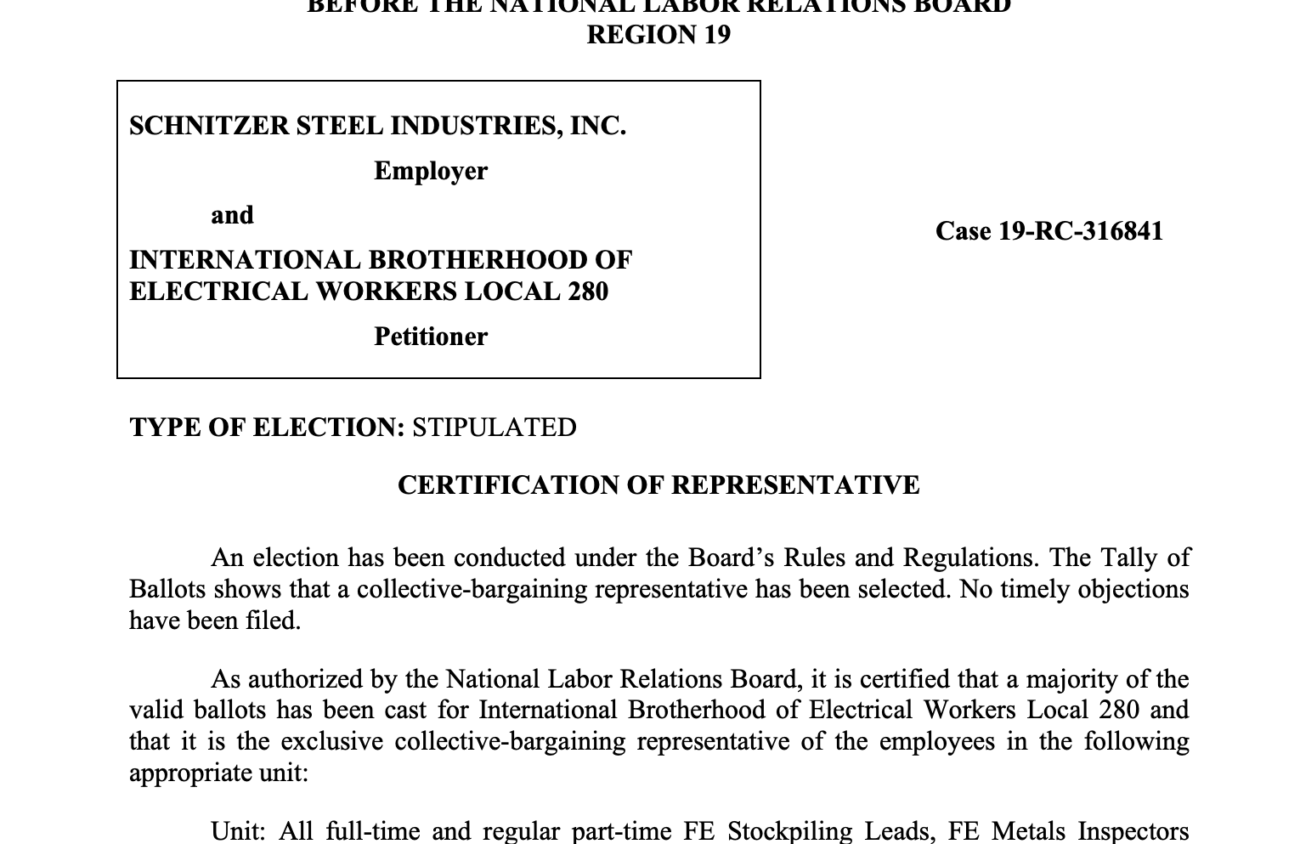Martie Wilde loves his job as a burner for Schnitzer Steel. “I have little to complain about, honestly,” Wilde says. “Except for the pay.” Wilde has worked at Schnitzer Steel for six years and says he didn’t receive an official pay raise until about a month ago. Other coworkers at Schnitzer Steels echoed the same sentiment: I love my job but I want to be better compensated for it.
“We were definitely inspired by the union stuff happening across the country,” Schnitzer Steel crane operator Justin St. Clair says. After some chatter among coworkers; the workers of Schnitzer Steel made a call to the International Brotherhood of Electrical Workers (IBEW) asking for some guidance. Within two months Schnitzer Steel workers held an election to form a union on June 6.
“We consider the work Schnitzer Steel workers do as definitely being under the IBEW umbrella, so we were happy to help,” IBEW 280 organizer Zac Bakke says. Founded in 1891, IBEW is one of the oldest and largest unions in the country. IBEW represents about 820,000 members and retirees who work in a variety of fields ranging from manufacturing to telecommunications. IBEW 280 covers Lane, Linn, Benton, Marion, Yamhill, Polk, Crook, Jefferson and Deschutes counties, and has more than 1,900 members.
According to the Economic Policy Institute, “Between October 2021 and September 2022, the National Labor Relations Board saw a 53 percent increase in union election petitions, the highest single-year increase since fiscal year 2016.” And the think tank says, “Evidence suggests that in 2022 more than 60 million workers wanted to join a union, but couldn’t.”
“After meeting with Zac, we started hearing the facts, and I said to my coworkers, ‘We all have similar values, and if we stand together we can do this,’” St. Clair says.
Management at Schnitzer Steel didn’t seem thrilled at the thought of a union, according to Wilde, but it also didn’t really get in the way, either. When Eugene Weekly asked about their thoughts on Schnitzer Steel joining IBEW, management responded with a written statement that says the company is driven by its core values of safety, sustainability and integrity. The statement continues, saying that Schnitzer is “committed to fostering a workplace environment founded on respect, transparency and open communication,” and “our employees’ decision to join the International Brotherhood of Electrical Workers (IBEW) Local 280 does not impact this commitment. We will continue to nurture strong relationships with our workforce and foster a supportive workplace culture.”
Now that Schnitzer Steel is a part of the IBEW 280, workers and organizers at IBEW 280 are working together to draw up a contract to present to management. One of the main concerns expressed by workers at Schnitzer Steel was that the pay structure did not reflect seniority.
“People who are just now starting here are making similar amounts as those who have worked 10, 15 years,” Wilde says.
St. Clair says that they are still working out specifics on what this pay structure will look like.
Aside from establishing a pay structure based on tenure, workers mostly just want to preserve the benefits they already have, like three types of medical plans and dental coverage, St. Clair says. “I believe from the bottom of my heart Schnitzer Steel is a great company and a union is only going to make it better.”
